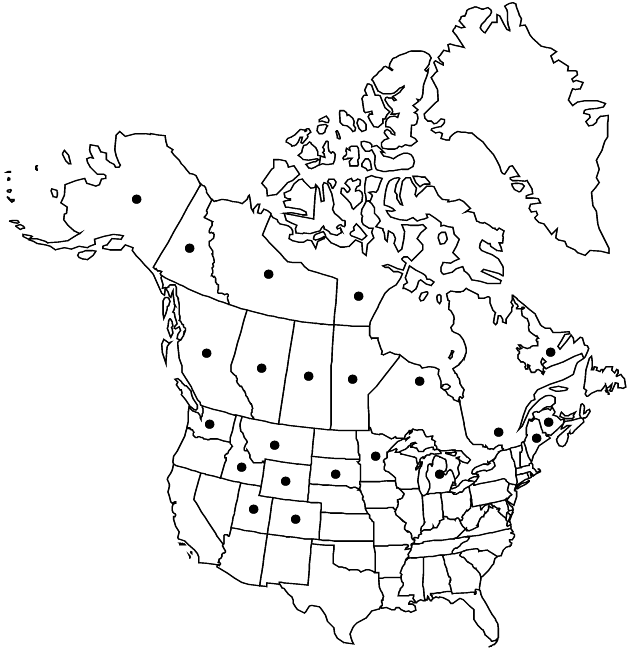Erigeron acris var. kamtschaticus
Bull. Soc. Imp. Naturalistes Moscou 38: 392. 1865.
Annuals, biennials, or short-lived perennials, 20–60 (–80) cm; usually fibrous-rooted, sometimes apparently taprooted, slender caudices simple or branched. Stems erect, sparsely to moderately strigose or loosely strigoso-villous or nearly glabrous, often also minutely glandular distally. Leaves basal (persistent) and cauline; blades oblanceolate to spatulate, 20–140 × 3–16 mm, cauline spreading, gradually reduced distally, margins usually entire, rarely serrate-dentate, faces glabrous or sparsely villoso-hirsute, distal sometimes also glandular. Heads 1 or 3–35 in corymbiform to thyrsiform arrays (peduncles curved-ascending). Involucres 5–11 × 8–22 mm. Phyllaries in 2–3 (–4) series (often purplish, inner apices attenuate to caudate), glabrous or sometimes sparsely hirsute, minutely glandular. Ray (pistillate) florets in 2 series; outer 150–250, corollas white to pink or purplish, laminae 3–4.5 mm (filiform), erect; inner fewer than outer, corollas tubular, elaminate. Disc corollas 4.2–6.2 mm. Cypselae 2–2.4 mm, 2-nerved, faces sparsely strigose; pappi: outer of setae, inner of (18–) 25–35 (accrescent) bristles. 2n = 18.
Phenology: Flowering Jun–Aug(–Sep).
Habitat: Rocky and sandy sites, riverbanks, roadsides, and other disturbed sites
Elevation: 900–3100 m
Distribution

Alta., B.C., Man., N.B., Nfld. and Labr. (Labr.), N.W.T., Nunavut, Ont., Que., Sask., Yukon, Alaska, Colo., Idaho, Maine, Mich., Minn., Mont., S.Dak., Utah, Wash., Wyo., e Asia (Russian Far East)
Discussion
Erigeron angulosus Gaudin, E. asteroides Andrzejowski ex Besser, E. droebachiensis O. F. Mueller ex Retzius, E. elongatus Ledebour, and E. politus Fries, names previously used for the widespread American plants of var. kamtschaticus, refer to Eurasian endemics (summary in G. L. Nesom 2004e). E. Hultén (1968) restricted the name var. kamtschaticus to a single North American collection made at “Junction Firth R. and Mancha Creek on the Alaska-Yukon boundary in August 1961,” treating all others of the species in North America as subsp. politus. Entire-leaved plants apparently are the common form of the species even in the Kamtschatka area, and var. kamtschaticus appears to be correct at varietal rank for the North American plants. Erigeron kamtschaticus has been treated as a species separate from E. acris in other recent literature. Circumscription and rank of E. acris and closely related taxa are in need of study.
Erigeron lapiluteus A. Nelson is not a legitimate name.
Selected References
None.